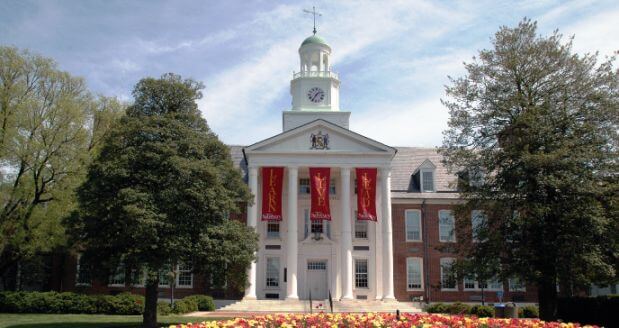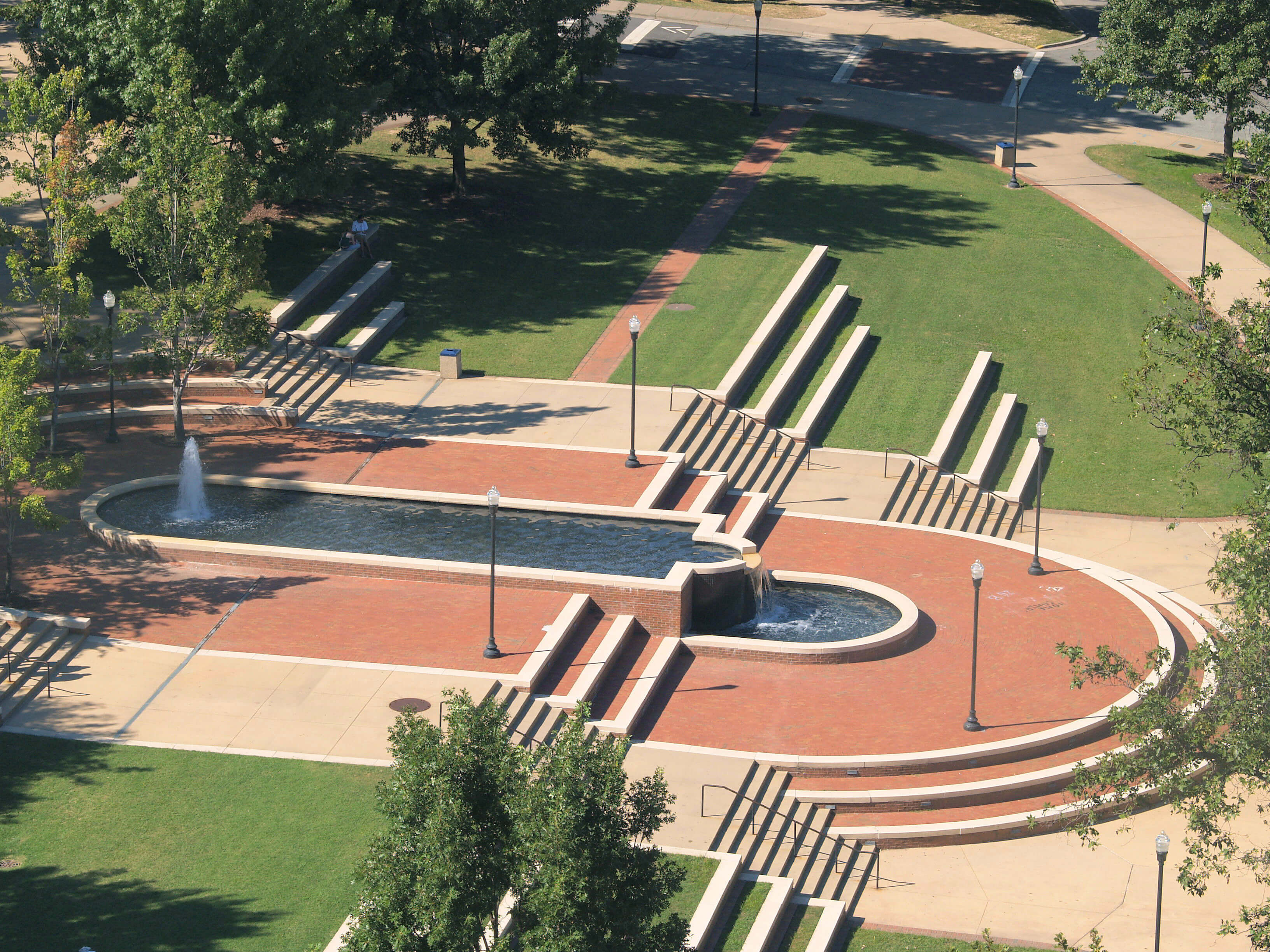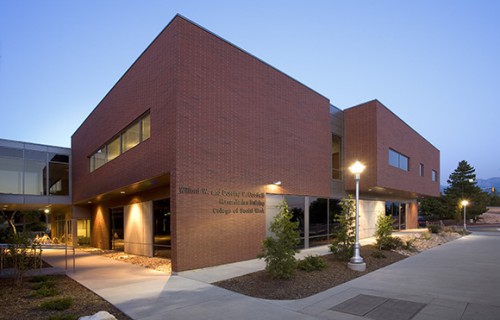Students who want to make a difference in their workplace and community can earn a top-ranked degree from Social Worker Degree Guide's Top 5 Bachelors in Negotiation and Conflict Management.

From overseas negotiations to community neighborhood forums, peacekeepers serve a valuable purpose in any form of conflict management. Arbitrators, mediators, and conciliators are not only used in federal and local government offices but utilized in hospitals, schools, local businesses, and even airlines.
A peacekeeper's job can include high-risk mediating negotiations between foreign leaders or more upbeat petitioning for companies to improve relationships with their consumers. No matter what their specialty or focus, these conciliators' primary focus is to strengthen ties and improve efficiency through strategically planned communication.
One of the perks to this particular career field is it doesn't require a Master's or doctorate, although it's always a great way to specialize later on. Conflict management can be an entry-level position, requiring only a Bachelor's degree to get that initial foot-in-the-door and the coveted professional work experience.
This makes an Arbitrator's services immensely appealing to employers and explains why peacekeepers hold roughly 8,000 jobs in the U.S. Because the career field for mediators is anticipated to grow ten percent by 2026, this has also given gold-star Bachelor's programs in negotiations across the country a chance to shine.
Online Social Work Programs For You
Choosing a Bachelor Degree Program in Negotiation and Conflict Management
The key to finding the right Bachelor's program is knowing what your long-term career goals are ahead of time because whichever degree program you choose, you'll want to be sure your school's curriculum and resources fully prepare you for the future.
The following list of schools represents the 5 Best Bachelor's programs for Negotiation and Conflict Management. The cherry on top: each program charges less than $20,000 for tuition while covering the basics of "peacekeeping."
Methodology
Social Work Degree Guide is here to help you find the perfect program for you. We factor in Student Satisfaction and Affordability as our primary metrics, at 30 percent of the total ranking each. From there Alumni Salaries, SAT Scores, and the school's retention rate each represent 10 percent.
#5 – Salisbury University
Bachelor of Conflict Analysis and Dispute Resolution
Salisbury, MD

Tuition: $17,678
Salisbury's department has partnered with the Bosserman Center for Conflict Resolution to create a set-apart conflict analysis program which offers a multidisciplinary approach to their teaching and learning. Salisbury's Bachelor's program offers students the chance to tailor their major to specific areas in conflict management. The school also provides the option for those in the program to double major in other social sciences such as social work, nursing, and communication.
Salisbury's conflict analysis and dispute resolution program focuses on providing a rich core curriculum, coupled with field experience, theory, and research. Students can also choose from three tracks for the major: International, Intergroup/organizational and Interpersonal. Also, the program hosts a "One Person Can Make a Difference" lecture series, which provides SU's students with the opportunity to be educated by speakers from around the world about their personal, first-hand accounts as peacekeepers.
Score: 79.20
#4 – Kent State University
Bachelor of Applied Conflict Management
Kent, OH

Tuition: $18,180
Kent State University's School of Peace and Conflict Studies founded one of the earliest conflict management programs in the United States. Formerly the Center for Peaceful Change, their Peace and Conflict school was established in 1971 as a living memorial for when the Ohio National Guardsmen killed four KSU students and injured while they were engaged in a protest against the Vietnam War.
The Bachelor's program houses some notable faculty members, including the center director Patrick Coy, editor of the book series, Research in Social Movements, Conflicts, and Change. The school also has connections with many valuable internships, including Barberton Citizens Hospital, American Arbitration Association, Center for Conflict Resolution and Rwanda's Global Youth Connect.
Score: 86.24
#3 – Portland State University
Bachelor of Conflict Resolution
Portland, OR

Tuition: $14,481
One of Portland State's most notable moments for their Conflict Resolution Bachelor's program took place in June of 2016 when the university hosted 25 young arbitration leaders from sub-Saharan Africa as part of President Obama's Mandela Washington Fellowship Program. With core courses in Peace Studies and Intercultural Conflict Resolution, PSU is dedicated to helping its undergrad students branch out beyond their everyday bubbles. The program also offers a wide range of electives and workshops that dive deeper into more concentrated groups of conflict management.
Score: 88.64
#2 – University of North Carolina – Greensboro
Bachelor of Peace and Conflict Studies
Greensboro, NC

Tuition: $10,403
The University of North Carolina at Greensboro offers an entirely online and unique Bachelors of Peace and Conflict Studies. UNC Greensboro not only requires their undergraduate students to complete a practicum before graduation but also encourages students to study abroad. The program connects with universities in Germany, Northern Ireland, Sweden, South Africa, Australia, and others. Graduates of the school's Peace and Conflict program have gone on to work with humanitarian activists, diplomats, law enforcement offices, health care professionals and K-12 educators.
Score: 93.08
#1 – University of Utah
Bachelor of Peace and Conflict Studies
Salt Lake City, UT

Tuition: $11,322
The University of Utah offers a Bachelor in Peace and Conflict studies designed in collaboration with the College of Humanities, Department of Communication, and the College of Social and Behavioral Science, Peace and Conflict Studies. Students in the program choose from one of three concentrations for their Peace and Conflict studies, which include Conflict Resolution, Social Justice, and Global Perspectives. All students are required to take core curriculum classes such as Negotiation, Poverty and Inequality, and International Affairs and Human Rights.
There are also plenty of ways students can get involved in conflict resolution experience outside the classroom, including joining the Peace and Conflict Club or participating in the Radical Middle Program, a campus radio show promoting non-violent cooperation and communication among community and family members.
Score: 100.00
